The International Hour is a webinar series organised by the RSA’s international community and networks. The series presents latest regional/urban research, developments and policies from around the world and offers a platform for discussion and exchange of ideas.
The webinars are free to attend and open to all. Recordings of previous sessions will be made available in the RSA Lounge.
Past Webinars
Regions, cities and territories are crucial contexts of transitions. They are locational agencies of change as well as transformed spaces by global forces related, for instance, to environmental sustainability, socio-economic disparities and digitalization.
This International Hour launched by the ROREP and the RSA will address regional development theories, policies and practices at stake in Switzerland in regard to spatial and place-based transition challenges. It will be organized in partnership with regiosuisse and broadcasted live from the “regiosuisse scientific forum 2021” that will take place the 13th and 14th of September 2021 in Andermat, Uri-Switzerland.
Speakers:
Christian Binz, EAWAG, Switzerland

Christian Binz is group leader in the cluster Sustainable Transitions and Business Innovations (CIRUS) at the Department of Environmental Social Sciences at Eawag, and an Associate Post-Doctoral Researcher at CIRCLE, Lund University, Sweden.
He received his PhD in Economic Geography from the University of Bern in 2012. Christian is a recipient of the Giorgio Ruffolo Post-doctoral Research Fellowship in Sustainability Science (2015) at Harvard’s Kennedy School of Government and has worked as a post-doctoral Research Fellow at Lund University (Sweden), UC Berkeley (USA), Tsinghua University (China) and Eawag.
His main research interests are centered on the potential for transformative innovation in the water and energy sectors. By combining recent insights from transition studies, economic geography and institutional sociology, he aims to explore how multi-scalar institutional arrangements hinder or support radical innovation in clean-tech industries and sustainability transitions in key infrastructure sectors.
Discussant: Tina Haisch, board member of ROREP, University of Applied Sciences and Arts, Switzerland

Tina Haisch is a professor and lecturer in Innovation and Space at the School of Business, University of Applied Sciences and Arts, Basel. She is a networker and links the scientific community to the private economy and public authorities. Attracting third party funding (SNSF, Innosuisse, ESPON, Interreg, ESF etc.), managing national and international projects are core responsibilities of her daily work. Tina cultivates the contacts to foreign universities, she is e.g. member of the affiliate network of the Microeconomics of Competitiveness network at Harvard Business School, Boston, MA. Her research is in local and regional economic development with a particular focus on clusters, dynamics of innovation, firms and entrepreneurship, value creation processes, creativity and sustainability. Tina completed her Ph.D. in Human Geography at the University of Basel. She has published articles in the field of economic geography and urban planning in scientific journals, including the Journal of Urban Affairs, Papers in Regional Sciences, Geographica Helvetica, Die Volkswirtschaft etc.
Chair: Daniel Baumgartner, board member of the ROREP

Daniel Baumgartner (born 1981) studied economic geography at the University of Zurich and did his doctorate on entrepreneurship and its impact on regional development the ETH Zurich and the Swiss Federal Institute for Forest, Snow and Landscape Research WSL. After his studies, he worked as a Post Doc at the University of Bern and later as a consultant at the private enterprise EBP Schweiz AG on regional development projects. Since 2015 he works at the Federal Office for Agriculture on cross-sectional themes of sustainable development in rural areas.
Organised in partnership with the RSA’s India Division.
The research study has the following objectives:
- To assess the impact of COVID-19 and the associated lockdowns on the livelihood and economic status of the households living in slums based on rapid telephonic survey conducted in select cities
- To understand its impact on health and access to health care (especially in events of COVID-19 infection), food security, education, and social wellbeing of the slum dwellers
- To understand the coping mechanism of the households
- To understand the impact of various social protection schemes in mitigating the problem
- To understand the inter-city variations of the impact of COVID-19 and the associated lockdown
Speaker: Debolina Kundu, National Institute for Urban Affairs, India

Debolina Kundu is a Professor at the National Institute of Urban Affairs, India and has over 20 years of professional experience in the field of development studies. She has worked as consultant with, ADB, LSE, IIDS, UNDP, UNFPA, UNICEF, UNESCAP, KfW, GIZ, Urban Institute, Washington and East-West Centre Honolulu on issues of urbanization, migration, urban development policies, municipal finance, governance and exclusion. She is currently the HUDCO Chair and editor of journals Environment and Urbanisation, Asia (SAGE) and Urban India (NIUA). She is the Country Investigator – India for the Global Challenges Research Fund (GCRF) Centre for Sustainable Healthy and Learning Cities and Neighbourhoods (SHLC), which is supported by UK Research and Innovation.
Chair: Remy Sietchiping, UN-Habitat, Kenya

Dr. Remy Sietchiping is the Chief of Policy, Legislation and Governance Section within the Urban Practices Branch of UN-Habitat. He oversees the development of strategic programmes of UN-Habitat including National Urban Policy, legislation, governance, urban-rural linkages, smart cities, metropolitan development and the International Guidelines on Urban and Territorial Planning. He has coordinated global, regional and country projects and programmes for UN-Habitat in Africa, Asia, and Latin America.
Dr. Sietchiping has over 25 years working experience in the UN system, academia, private and public sector and NGOs in Australia, Cameroon, Ethiopia, Jamaica and worldwide. He holds a Ph.D in Geography from the University of Melbourne, Australia. He is fluent in English and French.
The webinar will be devoted to the results of Cohesion Policy in Poland in the period 2007-2020. The presentation will be organised around two major issues related to both regional and local scales of analyses:
- divergence – convergence processes induced by the Cohesion Policy;
- demand-side (“civilisational”) – supply-side (“development”) influence of Cohesion Policy.
The presentations will relate to macroeconomic modelling (B.Rokicki), econometric analyses (M. Smętkowski) and the sociologial surveys of local governments (G. Gorzelak).
Organised in partnership with the RSA’s Polish Section www.regionalstudies.org/network/poland/
Speaker: Grzegorz Gorzelak, Centre for European Regional and Local Studies (EUROREG), University of Warsaw, Poland

Grzegorz Gorzelak is a professor of economics, specialising in regional and local development, regional policies and strategy building. Until 2016, he has been the director of the Centre for European Regional and Local Studies (EUROREG) at the University of Warsaw. He has coordinated several national and international research projects; the most recent ones are the ESPON TERCO project on territorial cooperation and the FP7 project “Growth – Innovation – Competitiveness: Fostering Cohesion in Central and Eastern Europe” (GRINCOH).
He has collaborated with the World Bank, OECD, DG Regio of the European Commission, and several agencies of Polish and Ukrainian governments, as well as regional and local authorities.
G. Gorzelak has published (as author and editor) over 50 books (several of them in English) and 260 articles. He is Editor-in Chief of a quarterly scientific journal “Studia Regionalne i Lokalne” and former president of the Polish Section of the Regional Studies Association.
Speaker: Maciej Smętkowski, EUROREG, University of Warsaw, Poland

Maciej Smętkowski – associate professor of socio-economic geography at the Centre for European Regional and Local Studies (EUROREG), University of Warsaw. Chairman of the Polish Section of the Regional Studies Association. Author of over 100 publications on metropolisation processes in different territorial scales, instruments of regional policy and cross-border co-operation including books “Regional Development and Regional Policy in Central and Eastern European Countries in the period of transformation and globalisation” (in Polish), “The European Metropolises and Their Regions: from Economic Landscape to Metropolitan Networks and “New economic spaces of the metropolis. Structure, functions and connections of business areas in Warsaw” (in Polish). He has been involved in number of research projects carried-out within research framework programmes of the EU and HORIZON 2020 as well as ESPON Programme (European Spatial Planning Observatory Network). Has extensive experience in evaluation and design of public policies at national, regional and local level.
Speaker: Bartek Rokicki, EUROREG, University of Warsaw, Poland
Chair: Agnieszka Olechnicka, University of Warsaw, Poland

Agnieszka Olechnicka is assistant professor at the Centre for European Regional and Local Studies (EUROREG), University of Warsaw. Director of the Centre for European Regional and Local Studies (EUROREG). Her professional experience regards research in the field of regional and local development with particular attention given to the knowledge economy issues and innovation-driven development problems. She took active part is several European projects (within EU Framework Programmes, ESPON and Interreg) and many national research and consultancy projects in this areas, also as coordinator. She conducted research in Great Britain, Ukraine and Canada. She has implemented projects commissioned by the Ministry of Regional Development, the Ministry of Science and High Education, the Polish Agency of Business Development (PARP) as well as regional and local bodies. Agnieszka Olechnicka is highly experienced in the analysis of the linkages between science and business using both quantitative (among them rarely used bibliometric data) and qualitative data. Recently she published the result of her habilitation project in the book “Science potential and innovativeness of regions” (2012, in Polish). She is co-editor of the Routledge publication “Universities, Cities and Regions. Loci for Knowledge and Innovation Creation” (2012, in English) embraces the finest papers of the international conference she organised in 2011 together with Network of Universities from the Capitals of Europe UNICA.
This session will discuss the economic effects of the COVID-19 pandemic on the northern region of Mexico, one of the most dynamic in the country but also one of the most affected by the closure of economic activities. This region is at the border with the United States, with whom it maintains strong productive ties. The paralysis of the sectors considered non-essential activities generated a pessimistic scenario in the economic performance of cities and states at this border and on the cross-border production chains. The closure of activities generated urgent questions about the impact of the pandemic and the public policy responses. In particular, the effect of the pandemic on companies and sectors of the border states is analyzed.
Speaker: Miriam Valdes, Autonomous University of Coahuila, Mexico

She is a professor in regional economics at the Centre for socioeconomic research, Autonomous University of Coahuila. Her main research topics include economic growth and regional-sectoral economic analysis based on non-parametric techniques and deterministic models, including: data envelope analysis, input-output models and social accounting matrices. She has collaborated in research and consulting activities for various public and private institutions. She currently teaches the subjects of Regional Economics and Efficiency and Productivity Analysis.
Speaker: Alejandro Alejandro Dávila Flores, Autonomous University of Coahuila, Mexico

Coahuilense, with studies in economics at the Autonomous University of Coahuila (in which he obtained the highest average of his generation), the National Autonomous University of Mexico and the University of Paris. His professional activity has developed in the fields of academia, economic consulting, administration of educational institutions and journalism.
He is a National Researcher of the SNI (National System of Researchers, level II), author of various books and articles, particularly in the area of regional economy.
He was Rector of the Autonomous University of Coahuila and currently works as a researcher at the Socioeconomic Research Center of that same institution.
Speaker: Jorge Carrillo, El Colegio de la Frontera Norte, Mexico

He is a professor at El Colegio de la Frontera Norte, Department of Social Studies, and Emeritus member of the National Researchers System. His lines of research include: Labor markets and innovation; Global Value Chains; Multinational Companies and Spin-offs. He is currently collaborating in the project “Impacts of Covid-19 in Baja California companies”, GIDI, Inter-Institutional Research Group; as well as in the project “Social Innovation Process in and around Multinational Companies”, Loughborough University, UK.
Speaker: Alfredo Hualde, El Colegio de la Frontera Norte, Mexico

He is a professor at El Colegio de la Frontera Norte, Department of Social Studies. He is a member of the International Sociological Association and the Mexican Association for Labor Studies. He is currently collaborating in the projects: “Training and Scaling of Mexican Knowledge-Intensive SMEs in the Border Region of Mexico and the United States”, “Migratory, labour and educational trajectories of international return migrants in Mexico”.
Chair: Alejandra Trejo, El Colegio de Mexico, Mexico

Alejandra Trejo is an economist and a professor at the Center for Demographic, Urban and Environmental Studies, El Colegio de Mexico in Mexico City. She is the chair of the RSA Latin American division and an ambassador to Mexico of the Regional Studies Association. Her research agenda reflects significant interdisciplinary concerns about the issues of urbanization, urban and regional economic development, governance and policy.
The Urban Agency of Speculative Urbanisation: the Experience of Korea (Hyun Bang Shin)
South Korea’s urban transformation can be characterized by its heavy dependence on what might be termed a “property-based urban development model.” Speculative urbanization, verticalization, accumulation of land rents, and the displacement of poor land users are the key features of such a model, which entails unequal redistribution of development gains in favor of property investors and builders. The role of the (neoliberalising) developmental state, situated nevertheless in the wider geopolitical economic contexts, was influential, nurturing the growth of real estate capital and the middle class that sustained the Korean experience of property-based urban development. The authoritarian developmental state initially turned to the use of state power and oppression to realize the urban development, but eventually resorted to the emerging hegemony of property to sustain property-based urban development under what can be characterised as speculative urbanization.
Between Knowledge and Policy: Policy Research Institutes and Urban Development Regime in Korea (Se Hoon Park)
One of the prominent features of public policymaking in Korea is the extensive role of poliy research institutes at both the national and local levels. Unlike think tanks that are independent in the financial and organizational sense seen in western countries, Korea’s policy research institutes have been mostly established and funded by the government. The national government has been operating a national research institute in almost every public policy area, and the policymaking of the national government has been dependent on the research activities conducted by the institutes. This presentation tries to understand why and how policy research institutes in Korea have played such a pivotal role in urban development policy by taking the example of the Korea Research Institute for Humans Settlements (KRIHS). I will explore the three elements as background of the extended role of policy research institute, which are the knowledge production market, government-institute relations and the urban development regime, and discuss further the the changing role of policy research institute in urban development along with the nation’s social and political transformation in recent years.
20% discount is available for the following book: Exporting Urban Korea? Reconsidering the Korean Urban Development Experience
20% discount is available for the books listed in the Routledge Advances in Korean Studies Series
Speakers:
Hyun Bang Shin, London School of Economics and Political Science, UK

Hyun Bang Shin is Professor of Geography and Urban Studies in the Department of Geography and Environment and also the Director of the Saw Swee Hock Southeast Asia Centre at the London School of Economics and Political Science. His research centres on the critical analysis of the political economy of urbanisation, politics of displacement, gentrification, housing, the right to the city, urban spectacles, and speculative urbanism with particular attention to cities in Asia. Hyun has published widely in major international journals and contributed to numerous books on the above themes. His most recent books include Planetary Gentrification (Polity Press, 2016), Global Gentrifications: Uneven Development and Displacement (Policy Press, 2015), Neoliberal Urbanism, Contested Cities and Housing in Asia (Palgrave Macmillan, 2019), and Exporting Urban Korea? Reconsidering the Korean Urban Development Experience (Routledge, 2021), and Covid-19 in Southeast Asia: An Insight into a Post-Pandemic World (LSE Press, 2022). He is an editor of the International Journal of Urban and Regional Research, and a trustee of the Urban Studies Foundation.
Se Hoon Park, Korea Research Institue for Human Settlements, Korea

Se Hoon Park is a researcher and commentator on the planning and politics of Korea cities and is currently a senior research fellow, Korea Research Institute for Human Settlements, Korea. He studied urban studies and planning at Seoul National University and the University of Tokyo. Having been involved in numerous national urban projects in Korea, he has talked and written on urban development, the cultural city, and ethnic places in Korean and East Asian cities. Recently, he has focused on development cooperation in collaboration with international organizations such as UN Habitat, the World Bank, and the Inter-American Development Bank. His publications include “Can we implant an artist community? A reflection on government led cultural districts in Korea” (Cities, 2016), and “Seoul” in The Wiley–Blackwell Encyclopedia of Urban and Regional Studies (Wiley, 2019) and Exporting Urban Korea? Reconsidering the Korean Urban Development Experience (coedited, Routledge, 2021)
Chair: Yu Min Joo, KID School of Public Policy and Management, Korea

Yu-Min Joo is an Associate Professor at the KDI School of Public Policy and Management (KDIS) in South Korea. Prior to joining KDIS, she taught at the Lee Kuan Yew School of Public Policy, National University of Singapore as an assistant professor from 2012 to 2019. She holds a PhD in Urban and Regional Planning from the Massachusetts Institute of Technology and a Master’s in Urban Planning from Harvard University. She researches and publishes on urban development and policy issues in Asia, particularly on the topics of urban governance, smart cities, mega-projects, and mega-events. Her latest books include Megacity Seoul: Urbanization and the Development of Modern South Korea, published by Routledge in 2019, and Smart Cities in Asia: Governing Development in the Era of Hyper-Connectivity, published by Edward Elgar Publishing in 2020 (co-edited with Teck-Boon Tan).
Organised in partnership with the National Institute for Urban Affairs (NIUA).
The BASIIC program was designed with the goal to mainstream the dialogue on inclusion in urban areas as an outcome of the consultation on “PwDs* friendly smart cities” for the Ministry of Housing and Urban Affairs, Government of India in 2018. NIUA with the support for the Foreign, Commonwealth and Development Office (FCDO) of the UK Government is implementing the project “Building Accessible Safe Inclusive Indian Cities” (BASIIC) that intends to formalize the tenets of universal access, inclusion, and safety, with the vision of making the current urban planning practices more sensitive and responsive to the needs of people with disabilities. In line with its goal, the program is currently supporting the cities of Varanasi and Pune to augment their planning approaches, institutional mechanisms, and capacities to implement projects that are more inclusive and accessible.
Utsav Choudhury, National Institute of Urban Affairs, India

Utsav Choudhury currently leads the Building Accessible Safe Inclusive Indian Cities programme at the National Institute of Urban Affairs. Utsav is a trained Anthropologist from Delhi University, India with over 8 years of community, social service, and development sector work. He has a demonstrated experience of working in the sector on human centric projects, which includes implementing various multilateral projects from USAID, Bill and Melinda Gates Foundation, Bernard van Leer Foundation, and more recently the UK-FCDO, with focus on social impact in the urban context.
Chair: Chandrima Mukhopadhyay

Chandrima Mukhopadhyay received her PhD from School of Architecture, Planning and Landscape, Newcastle University, Newcastle upon Tyne, UK in October 2014. She was the recipient of a competitive PhD Studentship on Spatial Planning and Environment. She has taught at CEPT University, India and was a visiting scholar at MIT-UTM Malaysia Sustainable Cities Program. She is an RSA Fellow.
The presentation raises issues related to metropolitan planning in Brazil and its possibilities to promote social inclusion and environmental justice. It is only recently, in 2015, that metropolitan planning returned to the planning scene as a scale to be taken into account by plans, policies and social movements. This change sometimes competes with the strong municipal turn adopted by the Brazilian urban policy since the 1988 Constitution and the 2001 City Statute. The discussion will be based on the recent experience of metropolitan planning for the region of Belo Horizonte carried out as a university extension activity in close dialogue with social movements and metropolitan institutions.
Orgainsed in partnership with the RSA Latin America Division.
Speaker: Heloisa Costa, Federal University of Minas Gerais, Brazil

Professor Heloisa Soares de Moura Costa holds a degree in Architecture and Urbanism from the Federal University of Rio de Janeiro (1976), a Master’s Phil in Urban Planning – Architectural Association (1983), a Ph.D. in Demography from the Federal University of Minas Gerais (1995) and post-doctorate at the Department of Geography at the University of California at Berkeley (1997/8). She is currently a professor at the Department of Geography at the Federal University of Minas Gerais, having as main areas of research: urban planning, urban geography, public policies and socio-environmental implications. She was coordinator of the Population and Environment WG of the Brazilian Association of Population Studies (2000-2002) and president of the National Association of Graduate Studies and Research in Urban and Regional Planning (2003-2005). Participates in editorial boards of periodicals in the area, including Revista Geografias (UFMG).
Chair: Pedro Amaral, Cedeplar, Federal University of Minas Gerais, Brazil

Pedro Amaral is a tenured professor (‘Professor Adjunto’) at the Department of Economics and the Center for Regional Development and Planning (Cedeplar) at Universidade Federal de Minas Gerais, Brazil, and Fellow of the Center for Spatial Data Science (University of Chicago, USA). I have a Ph.D. degree in Land Economy from the University of Cambridge and act as co-editor of the journals Spatial Economic Analysis (since 2014), Journal of Spatial Econometrics (since 2019), and Regional Studies, Regional Science (since 2013), and member of the scientific committee of the journal Nova Economia (since 2018). I am the ambassador for Regional Studies Association in Brazil (since 2017) and productivity fellowship awardee from the Brazilian Research Council CNPq (since 2017). I served as Visiting Associate Professor at the University of Chicago (2020), founding chair of the Regional Studies Association – Latin America Division (2015-2017), Executive Secretary of the Brazilian Association of Graduate Courses and Research on Urban and Regional Planning (ANPUR, 2015-2017), and member of the coordination board of the Brazilian journal Revista Planejamento e Políticas Regionais (2015-2017). My research interests are in the field of Regional and Urban Economics. More specifically, my research is based on applying spatial models and multivariate analysis to the study of regional and urban imbalances, mainly concerning health services.
The conversation amongst academics, researchers, and economists on the decentralization – development nexus has spiked during the past decade. Much is at stake when speaking of decentralization today. How far can decentralization go in helping nations and regions prosper? How better are centralized political and economic institutions in absorbing shocks, in comparison to their local counterparts? This talk aims to answer these questions and more. We will unpack the different ways through which decentralization contributes to development and broader politico-economic structures, with a focus on Lebanon. For the Lebanese case, Hussein will speak about the intersection between local public finance (such as spending and revenue structures) and economic development.
Speaker: Hussein Cheaito, The Policy Initiative, Lebanon

Hussein Cheaito is a Development Economist at The Policy Initiative, a Beirut-based research institute. He is also a Nonresident Fellow at The Tahrir Institute for Middle East Policy (TIMEP). His research interests include the economics of decentralization, gender economics, development economics and fiscal federalism. His current research revolves around local economic development, local public finance and Lebanon’s intergovernmental fiscal transfer system, the economics of remittances, and the political economy of aid. He completed his MSc in Development Economics at the University of Sussex as a joint Chevening, Saïd Foundation, and British-Lebanese Association scholar in 2020. He has a BA in Economics with a minor in Political Studies from the American University of Beirut.
Chair: Ghinwa Moujaes, INGENIO Valencia (CSIC-UPV), Spain

Ghinwa Moujaes is currently pursuing her PHD at INGENIO Valencia (CSIC – UPV). Her research is part of an Innovation Training Network funded by the EU’s Framework Program for Research and Innovation focused on the improvement of the EU’s Innovation policy of Smart Specialization. Her research interests include inequality, innovation and public policy implementation. Prior to starting her PHD path, Ghinwa worked as a consultant on Foreign Direct Investment Strategies with public and private agencies in Europe, Canada and the Middle East. She also has a MSc in Local Economic Development from the London School of Economics.
Planning and designing for social inclusion and sustainability requires a multi-scalar evaluation of the performance characteristics of cities, including urban morphology, connectivity and spatial proximity, the extent of unequal distribution of spatial qualities. It also includes an assessment of the sustainability characteristic (socio, economic and environmental impact) of the constantly developing infrastructure networks; and a comprehensive analysis of all relevant stokeholds, including the commonly called “in”-formal sector.
This session focuses on the impact sustainable infrastructure and social inclusion-oriented urban interventions have in reducing inequality and segregation and promoting resilience towards disruptions in mountain cities within the Ecuadorian Andes. By featuring different case studies, this session will place a special focus on urban informality, public space, and prototyping of urban infrastructure.
Speaker: MiguelAndrés Guerra, Universidad San Francisco de Quito USFQ, Ecuador
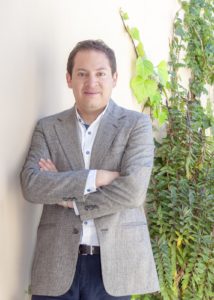
MiguelAndrés Guerra is an Assistant Professor at Universidad San Francisco de Quito USFQ. Dr. Guerra studied his Phd at Virginia Tech in Sustainable Construction Engineering Management; obtained his Masters of Science in Civil Engineering at Iowa State University as a Fulbright scholar. MiguelAndrés´ research interests include sustainable infrastructure design and planning, smart and resilient cities, and the development of infrastructure professionals (engineers, architects, planners, and designers) who not only have strong technical and practical knowledge but the social awareness and agency to address global humanitarian, environmental, and social justice challenges. Currently, Miguel Andrés uses qualitative methods to understand risk aversion among infrastructure professionals and explores a phenomenon of citizen-led urban prototyping to change risk perceptions and deliver more user-centered infrastructure. Furthermore, he is working on developing a decision support framework for disaster response, assessing engineering students’ agency to address climate change, and teaching empathy studies in engineering and higher education. For him, social sustainability is a concept that should always be involved in discussions on infrastructure.
Speaker: Jorge AndradeBenítez, PUCE Ibarra, Ecuador

Architect by the Pontifical Catholic University of Ecuador and Urban Planner by the University of Melbourne. His professional interest is related to an architecture of its own language that represents its time and reality, taking advantage of the potential of local material and human resources; on a city scale, he has been involved in initiatives regarding inclusive and high-quality public spaces, sustainable mobility and the protection and recovery of urban rivers. Assistant professor at the School of Architecture of the PUCE Ibarra, Jorge is part of research projects as Open Public Space – Ecuador, Safe Routes to School in Intermediate Cities of Ecuador and the Tahuando River Sub-basin Landscape Character Assessment. He has been awarded with the Pan-American Prize for works of heritage architecture and of heritage interest at the Quito Architecture Biennial, the Quito City Ornament Award for interventions in heritage architecture, the National Award for Landscape Architecture at the Quito Architecture Biennial, and the second Prize in the Building of the Year contest for the Pan-American website Plataforma Arquitectura.
Speaker & Chair: Vanessa Guerra, University of Virginia, USA
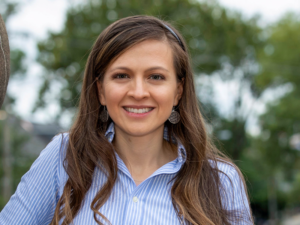
Vanessa Guerra is an Assistant Professor in Urban and Environmental Planning at the University of Virginia’s School of Architecture, where she teaches across urban planning and urban design. Her work focuses on urban interventions to promote social inclusion, resilience, and sustainable development in cities and regions of the Global South. Her teaching focus intersects with her research interests in urban informality, spatial justice, resilient cities, co-production, and cognitive urbanism. Prior to joining UVA School of Architecture in July 2021, Dr. Guerra served as a research associate and Interim Program Director of Rhizome LLC at Virginia Tech’s College of Architecture and Urban Studies and as a consultant at the Inter-American Development Bank and the World Bank in Washington, D.C. Dr. Guerra has presented her work in conferences and exhibitions across the United States, Europe, and South America, including the 2021 Venice Architecture Biennale, a TEDx event in Quito, Cityworks (Xpo) in Roanoke, and Oxford Talks at the Transport Studies Unit at Oxford University.
Serbian municipalities face serious governance, financing and infrastructure challenges that impact the quality of utility services and how they are delivered to the citizens. The problems are many: they range from inadequate municipal supervision over service delivery and financial management of local utility service providers – over poor collection of utility fees and charges, the accumulation of arrears, a lack of creditworthiness of service providers – to heavy dependence on central government’s financial arrangements and guarantees for investment. One of the major causes of financial non-sustainability of utility service providers is underpricing of utility services, as municipalities do not comply with the cost recovery principle. Besides the problems with financing recurrent expenditures, municipalities and the service providers also face challenges in accessing long-term loans for capital investment. The issues of ownership and management of infrastructure often aggravate this problem further. Serbian Local Government Finance Reform Program provides technical assistance to municipalities to introduce principles of good governance, better manage fiscal risks, enhance internal control of utility service providers and, thus, improve local finance and the quality of services provided to citizens. Professor Katarina Djulic is one of the Program’s key financial experts working on capacity building of local governments and municipal enterprises to improve local risk and financial management. Prof. Djulic will present the evidence and experience from Serbia, as well as the comparative overview of similar challenges and best practices from other Western Balkan countries.
Organised in partnership with Sanja Kmezić, RSA Ambassador for Serbia
Speaker: Katarina Djulic, faculty of Economics, Finance and Administration, Serbia

Katarina Djulic is the professor of corporate finance, corporate governance and risk management at the Faculty of Economics, Finance and Administration in Belgrade, Serbia. She currently works as an international consultant for the World Bank conducting policy research and analysis on subnational governance in the Western Balkans. She is also an international consultant for the International Finance Corporation (IFC) conducting corporate governance assessments of state-owned enterprises and sovereign wealth funds on a global scale. Ms Djulic is also engaged in Local Government Finance Reform Program, as a financial expert working on capacity building of local governments for the oversight of fiscal risks of municipal enterprises. Before her current engagements, Ms. Djulic was a senior consultant in KPMG Belgrade for governance, risk and forensic projects; project manager for IFC for corporate governance projects in Serbia and Montenegro; adviser to the minister and assistant minister of finance in charge of the Department for Financial System; project manager at the European Bank for Reconstruction and Development’s Office of General Council in London. Ms. Djulic was also a member of Board of Directors in DDOR, Novi Sad and Deposit Insurance Agency of the Republic of Serbia; a member of Supervisory Board in Jubanka, Beograd; and Chairwoman of Supervisory Board in Central Securities Depositary and Clearing House of the Republic of Serbia. Ms. Djulic holds a Bachelor of Laws from the University of Belgrade, a Master of Laws (LL.M.) from Northwestern University, a Master in Public Policy from Harvard University, JFK School of Government, and a PhD degree from the Faculty of Economics of the University of Belgrade.
Speaker: Mediha Agar, Governance Focal Point for Western Balkans, Governance Global Practice, World Bank
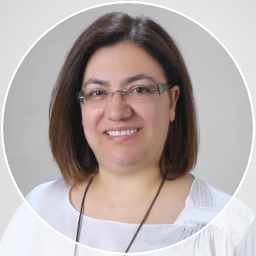
Agar has been working as Governance Focal Point for Western Balkan’s since 2018. As part of her role she has been covering the public sector reform agenda in six Balkan countries. Decentralization and local governance reform agenda has been one of her focused areas in the region. On top of the decentralization agenda, fiscal consolidation, public financial management, SOE governance and Climate in PFM has been the other areas of her expertise in the World Bank. During the last 20 years, she has had the opportunity of leading and contributing to various Development Policy Operations, Public Expenditure Reviews, PEFAs, Public Investment Management, SOE Governance and other technical assistance products in ECA countries.
Agar received her Bachelor’s and Master’s degree in economics from the Middle East Technical University, Turkey. She has been found members of the different NGOs including the Governance and Regulatory Quality Association in Turkey.
Chair: Sanja Kmezić, University of Graz, Austria
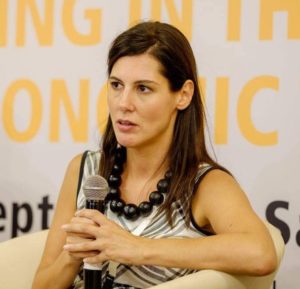
Sanja Kmezić is a lecturer at the University of Graz, where she teaches Economic Analysis of Law, Socio-economic Development in South East Europe, and Transition Policy and Regional Development in South East Europe. Sanja has worked as an international consultant for the World Bank, European Commission, Swiss Agency for Development and Cooperation and USAID on programs aimed at local government and public sector reform. She is a also coordinator of the Decentralisation Working Group within the LSE-LSEE Research Network on Social Cohesion in South East Europe. Sanja holds a doctorate from the Faculty of Law of the University of Graz, a Master of Public Administration (MPA) degree from the University of Pittsburgh and an LL.B. from the University of Belgrade. Her research areas cover public finance, tax law and fiscal policy analysis, and her special research focus is on fiscal decentralization, local government finance, and subnational governance and development.
This webinar was organised with the RSA China Division. Learn more about the RSA China Division: http://www.rsachina.org/, https://www.regionalstudies.org/network/china/
This session offers an intrinsically geographical understanding of the dynamic economic and social processes bundled together under the sign of ‘China model’. In the existing China model literature, popular theories range from the varieties of capitalism, market transition, developmental state, to state corporatism and authoritarian resilience, among others. What these different intellectual approaches share, however, is the persistent tendencies in (macro)economic theorizing to treat market and state as antipodes. The dichotomous perspective obscures mechanisms and processes that transcend the state-market divide in the analysis of China’s contemporary developmental/governance experience. In response, the presenters construct an integrated scheme to incorporate the social dimension, and characterize China as a market economy embedded in a particular system of political governance and society, which has strongly shaped national and territorial wealth accumulation, distribution and redistribution. This scheme brings to the fore China’s continuing attempts to combine capitalist and territorial logics, in terms of both enabling accumulation and spatial expansion, and addressing the attendant multi-scalar social inequity and inequality.
Speaker: Weidong Liu, Institute of Geographical Sciences and Natural Resources Research, Chinese Academy of Sciences, China

Professor Weidong Liu is a full professor in Economic Geography and Deputy Director at the Institute of Geographical Sciences and Natural Resources Research, Chinese Academy of Sciences, China. His areas of study are regional development and policies in China, foreign direct investments, spatial impacts of new information and communication technologies, and the changing geography of the automobile industry in China. Weidong is the (co-)author of 12 books (one in English) and 150 peer-reviewed journal papers (35 papers in English). He is the head of the Commission on Economic Geography of the Geographical Society of China and was previously the first chair (2014-2021) of the RSA-China Division.
Discussant: Chen Wang, Zhejiang University, China

Dr. Cassandra Chen Wang is Associate Professor and Assistant Dean in the School of Earth Sciences, Zhejiang University. Her research interests include trans-boundary knowledge/technology spill overs and firm innovation, industrial cluster and regional economies, e-commerce adoption and rural development etc. She is the author of Upgrading China’s Information and Communication Technology Industry: State-Firm Strategic Coordination and the Geography of Technological Innovation, and her work widely appears in the peer-reviewed international journals such as Journal of Economic Geography, Economic Geography, International Business Review, Environment and Planning A, Urban Studies, Asia Pacific Viewpoint, among many others. She is the PI of two national research projects granted by National Science Foundation of China and was the recipient of Regional Studies Association Early Career Grant.
Discussant: Shenjing He, The University of Hong Kong, Hong Kong, China

Professor Shenjing He joined the Department of Urban Planning and Design at The University of Hong Kong in January 2015. Shenjing’s research interests cover urban redevelopment/gentrification, policy mobility and entrepreneurial urbanism, rural-urban migration and informal housing, urban development and housing price mechanism, rural-urban interface, and health geography. She has published more than 130 journal articles and book chapters in both Chinese and English. Shenjing was listed by Elsevier as one of the most cited researchers in mainland China (social sciences) for six consecutive years (2015-2020) and HKU scholar in the top 1% since 2016.
Chair: Canfei He, Peking University, China
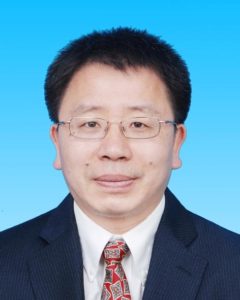
Professor Canfei He is a Changjiang Scholar and Full Professor in Economic Geography at Peking University in China. He is the dean of college of urban and environmental sciences at Peking University, the deputy director of Peking University-Lincoln Institute Center for Urban Development and Land Policy and Chair of the RSA’s China Division. His main research interests include evolutionary economic geography and environmental economic geography in emerging economies, industrial geography and multinational corporations, urban and regional development.
The webinar will be devoted to the presentation of various spatial analysis methods applied to studying two environmental issues of great interest in Spain, namely atmospheric pollution, and the processes of the green transition. The presentation will be organised around three major issues related to local and regional analysis scales. Specifically, the speakers will present the following works:
- Spatial statistic for air pollution control in the city of Madrid (Gema Fernández-Avilés)
- An analysis of ozone pollution by using functional data: rural and urban areas of the Community of Madrid (Luis Ángel Calvo)
- Green and digital transition: Assessing regional patterns of European Union subsidies (Javier Barbero)
Organised in partnership with the RSA’s Spanish Ambassador https://www.regionalstudies.org/people/coro-chasco/
Speakers:
Gema Fernández-Avilés, Statistics Department, Universidad de Castilla-La Mancha, Spain

Gema Fernández-Avilés is Full Professor of Applied Economics (Statistics) at the University of Castilla-La Mancha, Spain. Prof. Fernández-Avilés’s research lies broadly in economics and data science in air pollution control and real estate prices forecasting, using spatial and spatiotemporal statistical methodology. Her doctoral thesis was awarded as the best doctoral thesis on Regional Economy in the Community of Madrid in 2010. She is the director of the Master’s in Data Science and Business Analytics (with R software), and the president of the R-Quixote Association, which is an R software association for Business, Research and Education.
Javier Barbero, Department of Economics, Universidad Autónoma de Madrid, Spain

Javier Barbero holds a PhD in Economics from Universidad Autónoma de Madrid. After obtaining his PhD in 2016, he joined the Joint Research Centre (JRC) of the European Commission, where he was developing scientific advisory work on the impact of european economic and innovation policies. In September 2022, he returned to Universidad Autónoma de Madrid as a Lecturer in Economics. His research focuses on spatial economics, regional economic development, innovation policy, and efficiency and productivity analysis.
Luis Ángel Calvo, ICADE, Universidad Pontificia de Comillas, Spain

Professor Luis Ángel Calvo Pascual has a degree in Mathematical Sciences from the University of Salamanca (2007-2011) and a Ph.D. in Mathematical Sciences from the Autonomous University of Madrid (2013-2018). His research covers Differential Geometry, Algebraic Geometry, Bundle Theory, and, recently, machine learning and quantitative methods for pollution research. He has made six stays at international institutions such as the Tata Institute (Mumbai) and McGill University (Montreal). He has participated in and lectured at numerous conferences and workshops internationally.
Chair: Coro Chasco, Spatial and Regional Economics Research Group (ECONRES), Universidad Autónoma de Madrid, Spain
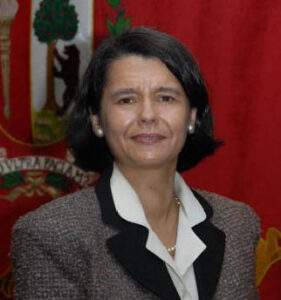
Coro Chasco is a Professor at Universidad Autónoma de Madrid. She runs the Spatial and Regional Economics research group (ECONRES), and Ambassador to Spain and FeRSA of the RSA. Dr. Chasco works on applied econometrics and spatial analysis, with applications to regional growth, housing prices, environment pollution, tourism, and quality of life. Professor Chasco’s participation in research projects has allowed her to explore deeper into different topics such as the role of geography and natural resources in the economic agglomeration processes of the European regions, the evolution of the Spanish urban areas, and the quantification of the impacts of pollution and noise in Madrid.
Regional and local development is experiencing a period of flux in New Zealand, occasioned by a range of key factors, including:
- The economic impacts of COVID
- Climate change and recent weather-related disasters
- The restructuring of the central government support for regional development
- Local government reforms and governance changes
- Market and economic change
- Parallel processes of selective small town population loss or gain and the associated challenges of both
- The impact on new policy requirements on farming
This session seeks to encourage debate around these issues this session and to bring together policy makers, practitioners and academics to discuss the current and future opportunities and challenges which they see playing out in the regional and local development space in New Zealand.
This session is organised in partnership with the Eitenne Nel, RSA Ambassador for New Zealand
Speakers:
Mel Jones, Business Attraction and Recovery Manager, Waitaki District Council, Oamaru – Local Government’s Role in Economicc Development in New Zealand

Mel Jones is the Business Attraction and Recovery Manager of the Waitaki District Council in Oamaru. She gained her experience working with global and national organizations around consumer goods, tourism and the dairy industry. She is passionate about resilience and agility in the modern world and in supporting communities.
Mel will speak on the role local government can and does play in economic development in New Zealand, reflecting on her current role and the opportunities and constraints which she sees in New Zealand and in her District Council specifically.
Peter Harris, Economic Development Manager, Queenstown Lakes District Council, Queenstown – Local Economic Action in a Time of Change
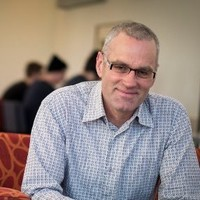
Peter is Economic Development Manager of the Queenstown Lakes District Council, Queenstown. He has previously held a similar position in Dunedin and played a key role in the Otago Polytech. He is a dynamic and insightful leader who has also played a key role in the national body; Economic Development New Zealand.
Peter’s presentation will relate to Mel’s by providing the perspective of the challenges and opportunities which face local governments in New Zealand. He will also speak about the challenges which Queenstown faced as a result of COVID and current efforts to diversify the economy of the District.
Bobbi Brown, General Manager: Tourism and Events, Great South, Invercargill – The role of Regional Development Agencies and Planning for a Just Transition

Bobbi is the General Manager: Tourism and Events of the Regional Development Agency: Great South, in Invercargill and she has currently been seconded to write the region’s new development and Just Transitions Strategy. She has a 20 year long career in strategic and operational management.
Her presentation will focus on: the role which regional development agencies can and do play in New Zealand and the importance of incorporating a just transition perspective into regional planning.
Sammy Bergen, researcher and Ministry of Business, Innovation and Employment – Regional Development in New Zealand
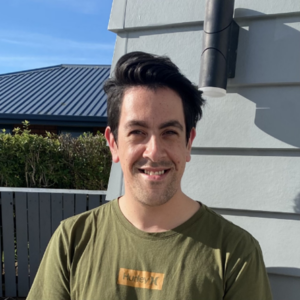
Sammy is passionate about research involving regional and small town New Zealand. He recently completed his Masters degree looking at economic change in small towns in the South Island of New Zealand. His last position was as a Research Associate on a project investigating migrant settlement patterns in the South Island. He recently started work for Kānoa : the New Zealand government’s Regional Economic Development and Investment Unit.
Sammy’s presentation will focus on his key reflections on what he has learnt as a researcher investigating aspects of regional and small town development in New Zealand and he will briefly touch on the role government in playing in the regional development space.
Jeff McNeill, Academic, Massey University, Palmerston North – Local and Regional Governance Challenges and Opportunities in New Zealand

Jeff is a Senior Lecturer in Resource and Environmental Planning at Massey University. His background is as a policy analyst, manager and consultant in local and central government and he currently coordinates and lectures on environmental management policy. He recently convened the New Zealand Local Government post-election symposium.
Jeff’s presentation will focus on his understanding of the challenges and opportunities which face New Zealand local governments.
Barbara Ribeiro, Academic, University of Auckland, Auckland – Regenerative Place-making
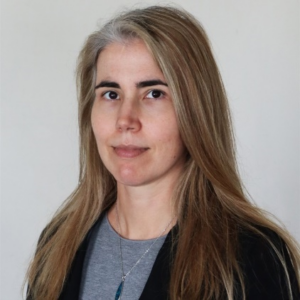
Barbara is a lecturer in the Faculty of Creative Arts and Industries at the University of Auckland. She has worked in North and South America, Europe and New Zealand and she describes herself as a ‘socio-ecological entrepreneur’. Her research focuses on Design for Sustainability Transitions (DfST) in Urbanism and also on related innovation and transformation mechanisms (e.g. strategic investment and foresight).
Her presentation will focus on her current research investigation into the topic of Regenerative Place-Making.
Malcom Campbell, Academic, University of Canterbury, Christchurch – “Airbnb: Disrupting the Regions in NZ” and how this has Changed During the COVID Period

Malcom is an Associate Professor in Quantitative Human Geography with expertise in health geography, as well as urban and regional analytics at the University of Canterbury (UC). He is Deputy Director of the GeoHealth Laboratory at UC and founder of the Regional Analytics Lab. He is working on a series of projects which examine and attempt to understand social and spatial inequalities in different contexts internationally.
His presentation will focus on his current work about Airbnb in New Zealand.
Paul Dalziel, Academic, Lincoln University, Lincoln – Sustainable and Liveable Cities – Lessons from the European Union IURC Programme
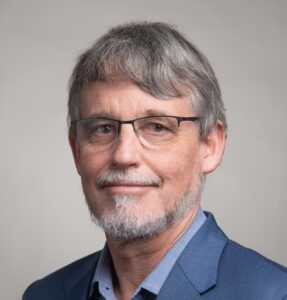
Paul is Director of the Agribusiness and Economics Research Unit (AERU) and Professor of Economic and Lincoln University in New Zealand. His research focuses on economic and social policy and he has a particular interest in regional economic development and sustainable wellbeing. He is actively involved with industry and with policy advisors in his areas of expertise and has published extensively.
His presentation will discuss his current research focus on: Sustainable and Liveable Cities – Lessons from the European Union IURC Programme, and what the study hopes to contribute to urban development debates and planning in New Zealand.
Chair: Etienne Nel, University of Otago, New Zealand
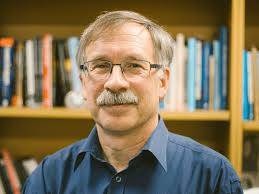
The Role of Civil Society Actors in Reigonal Sustainability Transformations
While many studies mention the importance of civil society actors for regional sustainability transformations, the role of this very heterogeneous and often loosely coupled group of actors is rarely examined in more detail. Accordingly, this presentation focuses on the role civil society actors as well as their governance in regional transformation processes towards sustainability. The Local Agenda 21 process in Augsburg, which has been initiated and driven by civil society actors for over 25 years, will serve as an empirical example. It will be shown that civil society actors (i) work on a broad range of issues from mobility to culture, (ii) do so in different actor constellations; cooperating with economic and public actors as well as with actors from a completely different and more alternative milieu, and that these processes (iii) are organized in a decentralized way and cannot be centrally steered. Yet, this influence of civil society actors was only made possible by a specific form of governance, namely the creation of a particularly flexible and constantly changing organizational environment, consisting of permanent and temporary organizational forms as well as adaptive guiding principles.
This webinar is orgainsed in partnership with regiosuisse and takes place as part of the regiosuissse – Wissenschaftsforum 2023
Speaker: Gesa Pflitsch, Western Norway University of Applied Sciences, Norway
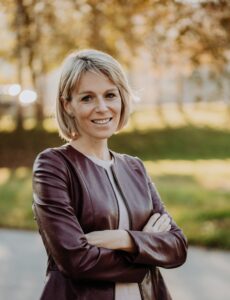
Gesa is an economic geographer, who currently works as an associate professor at the Mohn Centre for Regional Development and Innovation at the Western Norway University of Applied Sciences in Bergen. She received her PhD on “Micro dynamics and institutional change in regional transition paths to sustainability (RTPS)” from the University of Marburg in 2019, where she later also worked as a postdoctoral researcher. Gesa is particularly interested in sustainability transformations at the urban and regional level. In her work, she combines approaches from evolutionary economic geography, neo-institutional theory, and sustainability transitions research. She among others conducted research on the contribution of universities to regional sustainability transformations and worked on new methodological approaches to visually analyze regional transformation processes.
Chair: Tina Haisch, University of Applied Sciences and Arts Northwestern Switzerland, Switzerland

Since 2017 Tina is a Professor for Innovation and Space at University of Applied Sciences and Arts Northwestern Switzerland and is Co-Founder of the Future Region Lab. From 2011-2017, she did her post-doc in economic geography at the University of Bern and was visiting researcher at SFU Vancouver and at the Turku School of Economics. Her research focuses on processes of valuation in creative and cultural industries and how these processes are changing existing geographies of production. Furthermore, she analyses how cities, neighborhoods and regions transform through arts and culture and into sustainable futures. In earlier works she investigated and how societal values impact regional economic development and resilience and how dimensions of tolerance make a difference regarding location choices of creative individuals.
This session, in collaboration with the Institute of Place Management (IPM), will see both Prof Leigh Sparks and Phil Prentice, Senior Fellows of the IPM, discuss a Scottish perspective on place, in contrast to those in Westminster, Europe and beyond.
The session will involve discussion on a range of leading place policy and practice across government, business improvement districts, place partnerships and other stakeholders.
Scotland’s second Town Centre Action Plan will be explored, a town centre first framework that has been implemented by the Scottish Government to deliver a vision for Scottish towns and a means to achieve it.
The session will also uncover Scotland’s Towns Partnership’s approach, which works with a wide range of partnerships, such as Businesses Improvement Districts, Community Improvement Districts, Whole-island Business Improvement Districts, Tourism Business Improvement Districts. Food and Drink Business Improvement Districts and Digital Business Improvement Districts. These partnerships aim to promote collaborative corporate, community and public partnership working. This talk will examine these methods and collaborations and will cover key themes such as net zero and community wealth amongst other issues.
There will also be an examination of a holistic Placed Based Investment approach, where the whole needs of a person, whether mental health, physical, emotional, social, and spiritual wellbeing are met. This discussion will examine what this means, and if it is visible anywhere. Finally, the discussion will examine the places and issues where Scotland does need a bigger push.
Speakers:
Leigh Sparks, University of Stirling, UK

Professor Leigh Sparks is Deputy Principal (Education and Students) and Professor of Retail Studies at the University of Stirling. He was a geography undergraduate at the University of Cambridge and completed his Ph.D. (on retail employment) at the University of Wales. Leigh is Board Chair of Scotland’s Towns Partnership (2013-date), was a member of the External Advisory Group on the Scottish Government’s National Town Centre Review (2012-2013) and on the Expert Advisory Group advising the Scottish Government on the lessons to be learned from the Horsemeat Scandal (2013).
During 2020, Leigh was a member of the Scottish Government’s Social Renewal Advisory Board, the report from which (If Not Now When?) was published in January 2021, and Chaired the review of the Town Centre Action Plan for the Scottish Government, the report from which (A New Future for Scotland’s Towns) was published in February 2021. He was a member of the Scottish Government’s Ministerial Retail Strategy Group, which wrote the Retail Strategy for Scotland, published in March 2022. Leigh runs a blog on retail matters. and is a Fellow of the Royal Society of Edinburgh.
Phil Prentice, Scotland’s Towns Partnership
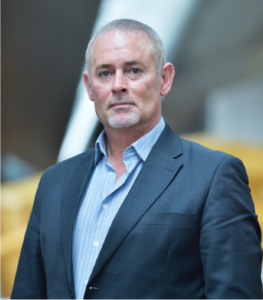
Phil Prentice is lead Consultant at Scotland’s Towns Partnership, National Programme Director for Scotland’s Improvement Districts and Director of the UK High Street Taskforce. He is also a Board member of Shelter’s Empty Homes Partnership.With 25 years economic development experience in both the public and private sectors his role is to help drive collaboration to revitalise and repurpose our town and city centres.
Chair: Cathy Parker, Manchester Metropolitan University, UK
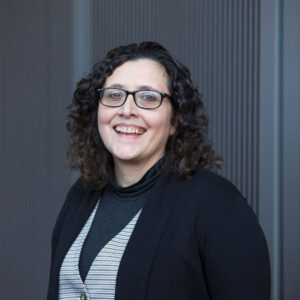
Cathy Parker MBE is Professor of Retail and Marketing Enterprise at Manchester Metropolitan University and Chair of the Institute of Place Management. Cathy is regarded as an international expert and leader in place management and is the research lead for the Government’s High Streets Task Force. She is frequently asked to commentate on place and retail related topics, appearing on programmes such as Newsnight, Radio 4’s The Today Programme, BBC Breakfast, and BBC Sunday Politics, as well as contributing to many broadsheet articles on the high street. Cathy has authored many peer-reviewed journal articles and regularly gives keynote talks at events.
Different EU programmes have initiated and financed a multitude of international research collaborations in the past decades, which generated fruitful co-operations between different partners across Europe but also contributed to the reproduction of European inequalities of knowledge production by sustaining differences in positions and roles of participants in collaboration networks, especially in an East–West dimension.
During the session, the following topics will be discussed:
- Understanding the inequalities of knowledge production faced and the challenges of participation in international research collaborations from the viewpoint of an ’Eastern’ member state of the EU.
- Besides the Central and Eastern European view, providing insights on challenges in international research perceived from other (Southern and Western) parts of Europe
- Assessing different angles of fragmentation of the European Research Area (and not just geographic ones), with special regard to disciplinary issues from the aspect of social sciences.
The discussion is supported by the results of SSH CENTRE Horizon EU research project, aiming at supporting the better representation of SSH research from across Europe, especially with the participation of CEE and SE countries, thus besides challenges raised, potential ways forward to cope with them will also be discussed.
Organised in partnership with the Reginar webinar series of HUN-REN KRTK Institute for Regional Studies (https://www.facebook.com/ReginarTheWebinar/)
Speaker: Gergely Tagai, HUN-REN Centre for Economic and Regional Studies, Hungary
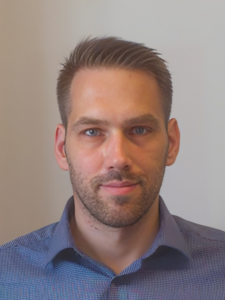
Gergely Tagai is a Human Geographer with a research interest in regional studies. He is a research fellow at the HUN-REN Centre for Economic and Regional Studies. His works are related to peripheralisation, demographic challenges and socio-spatial inequalities at national and EU levels. He has expertise in using quantitative methods, GIS, and theorisation of space. His current research focus is studying inequalities in scientific knowledge production in Europe by analysing the challenges of participating in international research collaboration networks.
Discussant: Violeta Cabello, Basque Centre for Climate Change, Spain
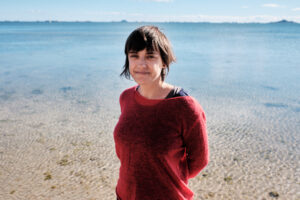
Violeta Cabello is a Social Environmental Scientist at the Basque Centre for Climate Change. Her research interests are currently focussed on knowledge co-production and water conflicts in Spanish arid lands. As part of SSH Centre, she co-chaired a workshop on Southern Voices on European Southern Voices on Research Geographies aimed at gathering views on the challenges and needs of Southern Europe researchers working on climate, energy and mobility research.
Discussant: Chris Foulds, Anglia Ruskin University, United Kingdom

Chris is an interdisciplinary Environmental Social Scientist, who uses the critical Social Sciences to explore policy and governance interventions for sustainability. He has extensive experience in coordinating large-scale Horizon2020 and Horizon EU projects on the possibilities of Social Sciences and Humanities insights in relation to European Green Deal ambitions.
Chair: Péter Balogh, Eötvös Loránd University, HUN-REN Centre for Economic and Regional Studies, Hungary

Péter holds a PhD in Human Geography from Stockholm University. He is now an Assistant professor at Eötvös Loránd University and a part-time Research Fellow at HUN-REN KRTK, Institute for Regional Studies. His research revolves around the links between space, ideology, as well as ideology politics. More specifically, Péter has been studying borderlands and geopolitical narratives in Hungary and elsewhere.
Controls and Communication (Cybernetics) of a System of Cities-in-Region through Creative Industries – Joy Sen
In-house researches in endogenous and exogenous circles have revealed that creative industries have always played a resuscitating role in sustaining micro-economy of any region. In current times of market economic uncertainty, chaos and disorder in a regional macro economy, it is Creative industries that have mostly saved the basics; guarded subsistence and survival, and more than that, the spirit of positive creativity and cultural rejuvenation. From ancient India to the one time City-states of Pre-Olympian Greek Confederation, that have always been the cases.
Recent researches on the case of Durga Puja in Bengal and similar ones in the Varanasi region have made the aforesaid truth evident. More than economy, the cultural and folk connections have played a far resilient role; and more than folk even, the deep ecological fabric intertwining regional people-place-produce with the cultural of materials, guided by the deeper science of climatic and seasonal cycles have even played a further and greater role. These, the researches reveal as embedded centroids of a civilization. For the Orient, and her story of Indian Civilization’ that once guided early Eastern Europe, there are stories of an inherent inner hierarchy whose governance exceeds the surface controls and communication systems (Cybernetics) of the Cities and their wealth and they are only outcome of a deeper creative network of Cities-in-a-region.
Informality as a Creative Framework for Resilience and Inclusive Development – Lakshmi Priya Rajendran
In this presentation, I critique the prevailing Western-centric understanding of informality and propose a more progressive perspective. By examining everyday informal practices and behaviours in public spaces in Chennai, India, I illustrate how informality serves as a creative framework for social innovation and development. The presentation reveals the dynamic interplay between formal and informal sectors, highlighting how informal activities contribute to adaptability, resilience, and inclusive growth in urban environments. This analysis underscores the importance of valuing the unique contributions of informality to the socio-economic fabric and sustainable development in the Global South, challenging traditional Western narratives.
Speaker: Joy Sen, Indian Institute of Technology Kharagpur, India
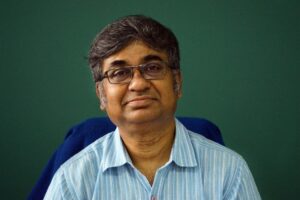
Dr. Joy Sen is currently Professor, Department of Architecture and Regional Planning, Indian Institute of Technology, Kharagpur with 27 years of teaching experience and 9 years of industrial experience. His master’s degrees are from College of Design, Iowa State University, where he received the ISU Best THESIS AWARD (1989). Prior to that he was recipient of Institute Silver Medal, Mansara Scholarship and the Best Thesis mark from IIT Kharagpur (1984). He is:
- Former and First Chairman, Centre of EXCELLENCE for INDIAN KNOWLEDGE SYSTEMS, IIT Kharagpur (2020 – 23), the first national IKS centre in the nation;
- Former Head of the Department of Architecture and Regional Planning (2017-19);
- Former Chairman, Ranbir and Chitra Gupta School of Infrastructure and Design, IIT Kharagpur (2014 – 2017) – the FIRST DESIGN SCHOOL focusing on Inclusive and Social Development Infrastructure in the nation.
- Principal Investigator of the Mega-19-projects initiative the Science and Heritage initiative IIT Kharagpur (S-and-HI) funded by the Ministry of Education (MHRD), Government of India (2013 -19) inclusive of Project Varanasi having additional collaboration with Universities in Japan; Queens Mary University London, UK; Columbia University, USA; and Georgia Institute of Technology, USA.
- Design-architect of 16 small to large architectural and planning projects including St. Xavier’s University Campus, New town, Kolkata.
Dr. Sen is the recipient of prestigious G. S. Sanyal All-round Faculty Excellence Award (2021) from IIT USA Alumni Foundation, USA – having outstanding records of sustained social interaction with students through empathy and compassion in teaching and research. He also received the QANSAS Distinguished Speaker Award (2019) from the Quantum Group, run jointly by Dayalbagh Educational Institute Agra, The University of Michigan, and Stanford University USA (Harmony of Indian Philosophy and latest in Quantum Sciences). He has co-authored with 6 of his 15 scholars in various national and international workshops and conferences, all conferred BEST PAPER AWARDS.
He has guided 14 Ph.D. Theses; and authored over 50 SCI Journal papers, 7 textbooks and 5 Children thrillers inclusive of a book entitled SUSTAINABLE URBAN PLANNING (2011) published by the TERI (The Energy Research Institute), New Delhi, which has been earmarked as a national bestseller.
Speaker: Lakshmi Priya Rajendran, University College London, UK

Dr.Lakshmi Priya Rajendran is currently an Associate Professor in Environmental and Spatial Equity and Co-Director of Equality, Diversity and Inclusion at the Bartlett School of Architecture, University College London , UK. She is also the Co-chair for the UCL’s Environment Research domain , Academic co-chair for the UCL Advisory Group on Climate Change and Health and UCL’s Climate Crisis Executive Committee member . Her teaching and research interests’ deal with equitable futures and climate justice, alternative city imaginaries, decoloniality, critical social and digital media, spatial representation and practice, identity negotiations, cultural encounters in contemporary cities. She is particularly interested in an interdisciplinary understanding of social, spatial, temporal and material practices in cities and a comparative study of these practices in the Global South. Lakshmi has completed several externally funded projects, some of them include collaborative project in India, Turkey, Brazil, Mexico,South Africa, Bangaladesh. She is currently leading a two-year research project Transgressing ‘Good’ Cities: Decolonising City Narratives for Just Urban Futures (2023-2025) funded by the British Academy’s Knowledge Frontiers: International Interdisciplinary Research 2022, in collaboration with IIT Chennai, India, and Radboud University, Netherlands which aims to develop alternative city imaginaries grounded in residents’ place narratives in relation to local heritage, culture, and values.
Chair: Mohammed Firoz, National Institute of Technology Calicut, India
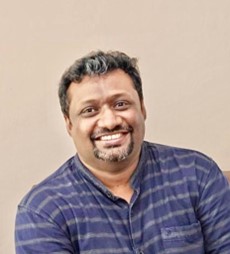
Dr Mohammed Firoz currently serves as an Associate Professor and the Head of the Department of Architecture and Planning, at the National Institute of Technology (NIT) Calicut, India. He had earlier served as a a visiting Faculty at the Asian Institute of Technology Bangkok, Thailand and at the School of Architecture, Architecture Association ( AA) London. He is also currently holding the position of Research fellow at the Shinawatra University, Thailand. Dr. Firoz graduated from NIT Calicut as a university rank holder, completed his post-graduation in Urban and Regional Panning from CEPT university, a postgraduate Diploma in Urban Environment Management and Law from the National Law University, Delhi. India and PhD degree from Indian Institute of Technology (IIT) Kharagpur. Dr. Firoz has been teaching NIT Calicut since July 2004 for undergraduate, post graduate & PhD students along with research, publishing as well as consultancy and university services. He has written 37 papers in Indexed journals and book chapters. He had also guided 3 PhDs and is currently guiding 8 more. He was also in the advisory panel of more than 21 PhD thesis as its chairperson/member. He was also the principal guide for 40 Master’s thesis. He is associated as the Editorial board of 3 reputed journals namely, the Journal of Area Development and Policy of the Publisher Taylor and Francis, Social Impacts of Elsevier; and Humanities and Social Science Communications of Springer Nature. He is also editing 4 books for reputed publishers like Springer and Taylor and Francis. His fields of interest include Metropolitan and Regional planning, Sustainable development of cities and settlements, Creative Economy for Cities, Peri Urban studies, Environmental Management and Climate adaptation etc.